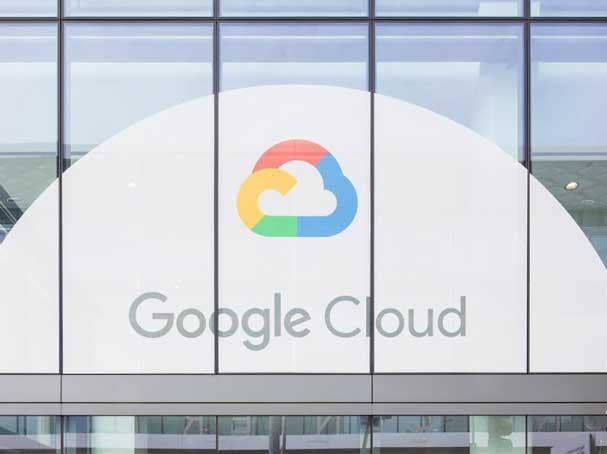AWS Vs. Microsoft Vs. Google Cloud Earnings Face-Off
The three largest cloud providers in the world all recently released their quarterly financial earnings results. CRN breaks down the key cloud numbers for AWS, Microsoft and Google Cloud.

Cloud Sales, Growth Rate, Operating Income And Market Share Comparisons
The three largest cloud providers on the planet each released their quarterly financial earnings results this week, providing a window into just how well Amazon, Microsoft and Google’s cloud businesses are doing.
Additionally, Synergy Research Group also released today new second quarter 2022 global cloud market share data with AWS, Microsoft Azure and Google Cloud leading the way.
In fact, the three cloud giants now combine for approximately 65 percent of the total worldwide cloud infrastructure services market, which reached $54.7 billion in the second quarter of 2022, according to Synergy’s data.
[Related: AWS re:Inforce 2022: 10 Biggest News And Product Launches]
AWS, Azure and Google Cloud are locked into a long-term battle aiming to become the dominant cloud market leader by investing billions in building new data centers, acquiring companies, doubling down on cybersecurity and expanding globally.
AWS is the pioneer in cloud computing with well over a decade in the market it helped create.
As the largest software company in the world, Microsoft is seeking to digitally transition its massive customer base to the Azure cloud.
Google was late to the cloud computing market, but is seeing significant growth over the past few years after hiring Thomas Kurian as its new CEO in late 2018.
AWS, Google Cloud, Microsoft Financial Earnings
In terms of quarterly financial earnings, all three companies released their results for the quarter ending June 30, 2022.
For Google and AWS, this represented their second fiscal quarter 2022. For Microsoft, it represents the company’s fourth fiscal quarter 2022.
Google Cloud includes Google’s infrastructure and platform services, collaboration tools, and other services for enterprise customers.
AWS is Amazon’s cloud infrastructure and platform services business, which includes more than 200 products and services.
While Amazon breaks out its AWS sales and Google breaks down its Google Cloud revenue, Microsoft does not disclose specific Azure revenue dollars.
However, Microsoft does offer Azure revenue growth percentage as well as sales figures for a segment dubbed Microsoft’s Intelligent Cloud—which includes Azure public cloud for application hosting, SQL Server, Windows Server and enterprise services. The company cites its overall cloud sales as “Microsoft Cloud” although the generic term does not explain what it entails.
CRN breaks down total cloud sales, operating income, cloud growth rates and worldwide market share for the second quarter 2022 for Amazon, Microsoft and Google as well as remarks from CEO’s Andy Jassy, Satya Nadella, and Sundar Pichai.

Total Cloud Sales
AWS: $19.74 Billion
Google Cloud: $6.28 Billion
Microsoft Cloud: $25 Billion
Amazon Web Services generated a record-breaking $19.74 billion in revenue during its second quarter.
Google Cloud captured $6.28 billion in cloud sales during its second quarter.
Microsoft does not disclose specific Azure revenue dollars. The company said “Microsoft Cloud” sales reached $25 billion during the quarter. Breaking down Microsoft’s Intelligent Cloud segment, the group reached $20.91 billion in the quarter.
Executive Remarks:
“In a dynamic environment we saw strong demand, took share, and increased customer commitment to our cloud platform. Commercial bookings grew 25 percent and Microsoft Cloud revenue was $25 billion,” said Amy Hood, executive vice president and chief financial officer of Microsoft.
Amazon has poured billions of dollars into building new data centers across the globe to accommodate the high demand for AWS cloud services.
“Right now we’re at 84 [AWS] availability zones, so that’s 26 geographic regions, and we’ve got plans to the launch 24 more of those availability zones across eight regions,” said Dave Fildes, director of investor relations, during Amazon’s second quarter earnings report today. “We’re continuing to focus on building those out for customers, working on that pipeline, and building longer commitments,” Fildes said. “Finding customers that are making longer commitments is really important.”
Google CEO Sundar Pichai said Google is continuing to invest in areas like AI and cloud, but in what he called a way that is responsive to the current environment.
“We are focused on hiring engineering, technical, and other critical roles,” Pichai said. And we are working to improve productivity and ensure that the great talent we do hire is aligned with our long-term priorities.”

Cloud Sales Growth Rates
Google Cloud: 35 percent
AWS: 33 Percent
Microsoft Cloud: 28 Percent
AWS reported sales of $19.74 billion, representing an increase of 33 percent year over year compared to $14.8 billion in second quarter 2021.
Google Cloud total sales of $6.28 billion is an increase of 35 percent year over year compared to $4.63 billion in second quarter 2021.
Microsoft Cloud segment generated $25 billion in sale, up 28 percent year over year, compared to $21.8 billion in fourth quarter 2021. Microsoft said its Azure sales and other cloud services grew 40 percent year over year.
Executive Remarks:
“Q2 revenue grew to $6.3 billion, with momentum across Google Cloud Platform and Workspace,” Google’s CEO said. “We saw continued demand in all geographies. … We launched Google Public Sector in June, expanding our commitment to help U.S. government agencies and public institutions accelerate their digital transformations.”
Microsoft CEO Satya Nadella said organizations in every industry are continuing to choose Microsoft’s cloud to align their IT investments with demand.
“We are seeing larger and longer-term commitments and won a record number of $100 million-plus and $1 billion-plus deals this quarter,” said Nadella. “We have more data center regions than any other provider, and we will launch 10 regions over the next year.”
Amazon Chief Financial Officer Brian Olsavsky said the opportunity for AWS ahead is “huge.”
“It’s early days in the [cloud] adoption curve for companies and governments,” said Olsavsky. “We invest with that confidence in mind and customers have responded and we’re going to keep investing there.”

Operating Income
AWS: $5.72 Billion
Google Cloud: $858 Million Loss
Microsoft Intelligent Cloud: $8.68 Billion
AWS generated operating income of $5.72 billion for its second quarter, up 36 percent year over year.
Google Cloud reported an operating income net loss of $858 million for its second quarter. Google Cloud’s $858 million loss was 45 percent higher than its $591 million deficit in second quarter 2021.
Microsoft Intelligent Cloud segment reported operating income of $8.68 billion, up 11 percent year over year, compared to $7.79 billion. Microsoft does not break down operating income for Microsoft Cloud.
Executive Remarks:
Google’s CEO said he’s not concerned with Google Cloud’s operating loss as the company is focused on investing billions in the cloud for long-term growth.
“With an uncertain global economic outlook, our strategy to invest in deep technology and computer science to build helpful products for the long term is the right one,” Pichai said. “Our ability to take the long view stems from our timeless mission: To organize the world‘s information and make it universally accessible and useful.”
“When I talk with customers, it’s clear there’s a real opportunity to help organizations in every industry use digital technology to overcome today’s challenges and emerge stronger,” said Microsoft’s Nadella. “No company is better positioned than Microsoft to help organizations deliver on their digital imperative so that they can do more with less.”
AWS’ Fildes said his company will “continue to find new customers and new industries,” including government agencies.
“If you look where our investments have been over the last few years, it’s in the growth of our sales force and our sales support. It is showing benefits and we expect that to continue,” he said.

Worldwide Enterprise Cloud Market Share In Second Quarter 2022
AWS: 34 Percent
Azure: 21 Percent
Google Cloud: 10 Percent
According to newly released data from Synergy Research Group, enterprise spending on cloud infrastructure services hit $54.7 billion mark in the second quarter of 2022, up 29 percent year over year.
As of the second quarter of 2022, AWS is the worldwide leader in cloud infrastructure services revenue by winning 34 percent share of the global market.
Microsoft Azure’s cloud market share stood at 21 percent share, while Google Cloud placed third with 10 percent share of the worldwide cloud infrastructure services market, according to Synergy Research Group.
“Amazon had a particularly strong quarter and bumped up its worldwide market share by a full percentage point. Google also nudged up its market share,” said John Dinsdale, a chief analyst at Synergy Research Group, in a statement.
Amazon, Microsoft and Google, combined, won a whopping 65 percent share of the worldwide market in the second quarter 2022, up from 61 percent a year ago.
“While there has been a lot of hand-wringing in some circles over the impact of global economic and political issues on company performance, the fact is that the cloud market remains in rude good health,” said John Disndale.
In terms of the other largest global cloud market share leaders in the second quarter following the big three: Alibaba Cloud won 5 percent share; IBM and Kyndryl won 4 percent share; Salesforce won 3 percent share; Tencent won 3 percent share; and Oracle won 2 percent market share.

Parent Company Revenue And Net Income
Amazon Revenue: $121.2 Billion
Amazon Net Income: $2 Billion Loss
Amazon generated $121.2 billion in total sales during its second quarter, representing 7 percent growth year over year.
However, the company overall reported a net loss of $2 billion in the second quarter, compared to generating $7.8 billion in net income during the same quarter one year ago.
“Despite continued inflationary pressures in fuel, energy, and transportation costs, we’re making progress on the more controllable costs we referenced last quarter, particularly improving the productivity of our fulfillment network,” said Amazon CEO Andy Jassy, in a statement. “We’re also seeing revenue accelerate as we continue to make Prime even better for members.”

Alphabet Revenue: $69.68 Billion
Alphabet Net Income: $16 Billion
Google Cloud’s parent company Alphabet reported total revenue of $69.68 billion, an increase of 13 percent year over year compared to $61.88 billion.
Alphabet’s net income was $16 billion, compared to $18.52 billion year over year.
“In the second quarter our performance was driven by Search and Cloud,” said Google’s CEO Pichai. “The investments we’ve made over the years in AI and computing are helping to make our services particularly valuable for consumers, and highly effective for businesses of all sizes. As we sharpen our focus, we’ll continue to invest responsibly in deep computer science for the long-term.”

Microsoft Revenue: $51.87 Billion
Microsoft Net Income: $16.74 Billion
Microsoft’s total revenue reached $51.87 billion in its fourth quarter, increasing 12 percent year over year compared to $46.15 billion.
Microsoft net income reported a net income of $16.74 billion, up 2 percent year over year compared to $16.46 billion.
“We will invest to take share and build new businesses in categories where we have long-term structural advantage,” Nadella said. “We are helping organizations digitize their customer experience, service, finance and supply chain functions as we continue to outgrow the market in every category.”